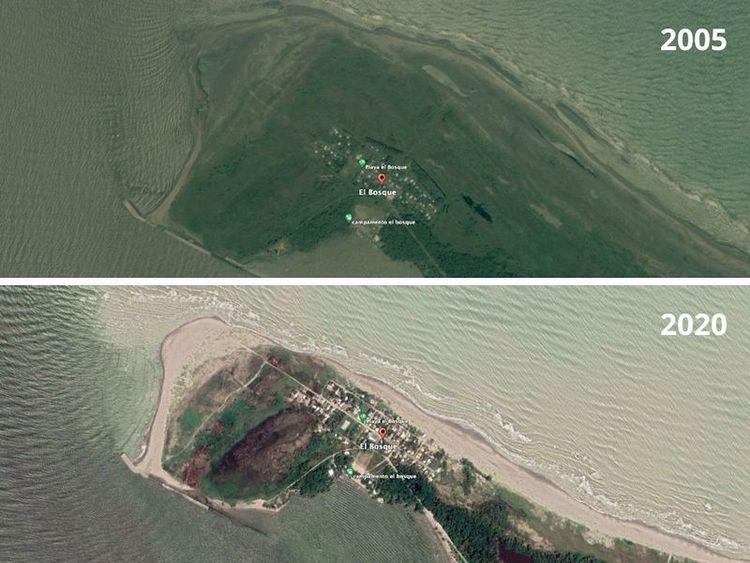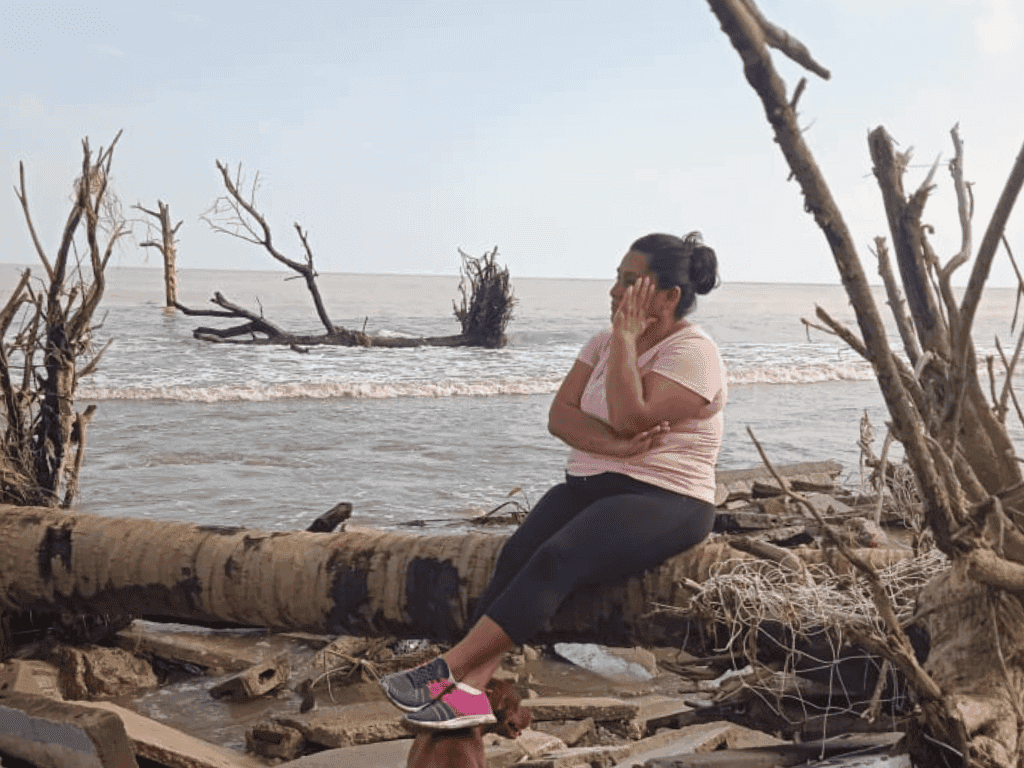El Bosque is a fishing community in Centla, Tabasco, that is kept in fragments. Houses and schools collapsed by hurricanes, storms and waves, makeshift shelters with sheets and the sea growing deeper. All because of marine erosion, which, in turn, is the result of the climate crisis.
The anxiety of El Bosque began in 2019, when the community located in southeastern Mexico lost the first line of houses that were closest to the sea. This has led to the migration of more than 50 families, while those who have no options remain in shelters.
“The sea has destroyed everything, it's not like a hurricane where after passing we say 'I'm going to see what picture was good' or 'I'll stay on the ground to start again'. There's nowhere to start again here,” said Guadalupe Cobos Pacheco, a resident of El Bosque, during her presentation at the Echando Redes Climatic event held in Mexico City.
At this event organized by the Walton Family Foundation, the producer The Gulf Stream and Climate Connections (which has been one of the organizations responsible for accompanying the community), fishermen, representatives from other parts of the country, civil society organizations and journalists were also present.
For Guadalupe, it is necessary that there be a relocation of the affected population, but also that the conditions in which those who have not left are currently living be addressed. With houses that continue to fall, boys and girls unable to attend classes, lack of electricity and the sea moving rapidly.
“We need them to talk about what is happening to us, to know more, to see what we are experiencing because we are already in a climate crisis. Climate change has arrived and is overtaking us,” said Guadalupe.

Satellite images from Google Earth that allow us to see the advance of marine erosion and the rise of sea level in El Bosque.
Waiting for the storm
“Before, El Bosque was a very beautiful community, one of the best beaches in Tabasco,” said Guadalupe Cobos, who with her family is dedicated to fishing. The last season where waves and storms hit hard was in November and December of last year, also preventing fishermen from going out to work.
As of November, 30 homes had been lost, with the risk of losing another elementary school and 20 more houses over the next few months, according to Greenpeace assessments.
The organization even took advantage of the framework of the inauguration of the Conference of the Parties (COP27) to talk and share information about the effects of the climate crisis in Mexico. In particular, in Tabasco, which “is in a situation of high vulnerability due to its geographical location and factors of inequity,” he said.
Regarding the Mexican authorities, last February 6, at the morning press conference, President Andrés Manuel López Obrador instructed Jorge Nuño Lara, Secretary of Infrastructure, Communications and Transportation, to deal with the relocation of the entire affected population.
The community of El Bosque has had conversations with the Secretariat of Environment and Natural Resources, but no action has been taken.
The current count of lost homes is 36, Guadalupe said during the presentation.
He added that although recently the weather has favored fishing and there are no more risks, “when the sea calms down, our hearts calm down”, he knows that concern will return in approximately 80 days when the hurricane and storm season begins.



Comentarios (0)